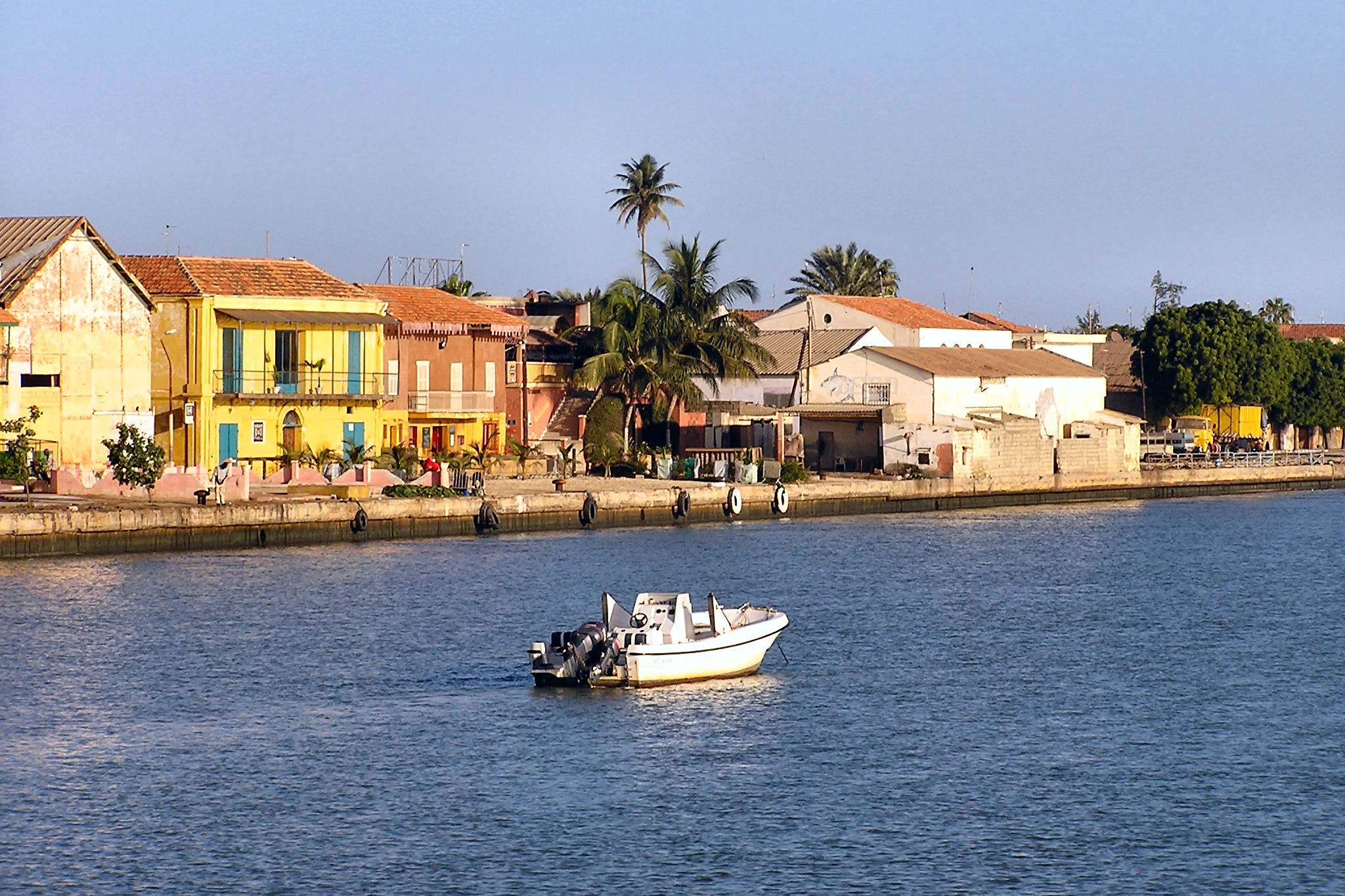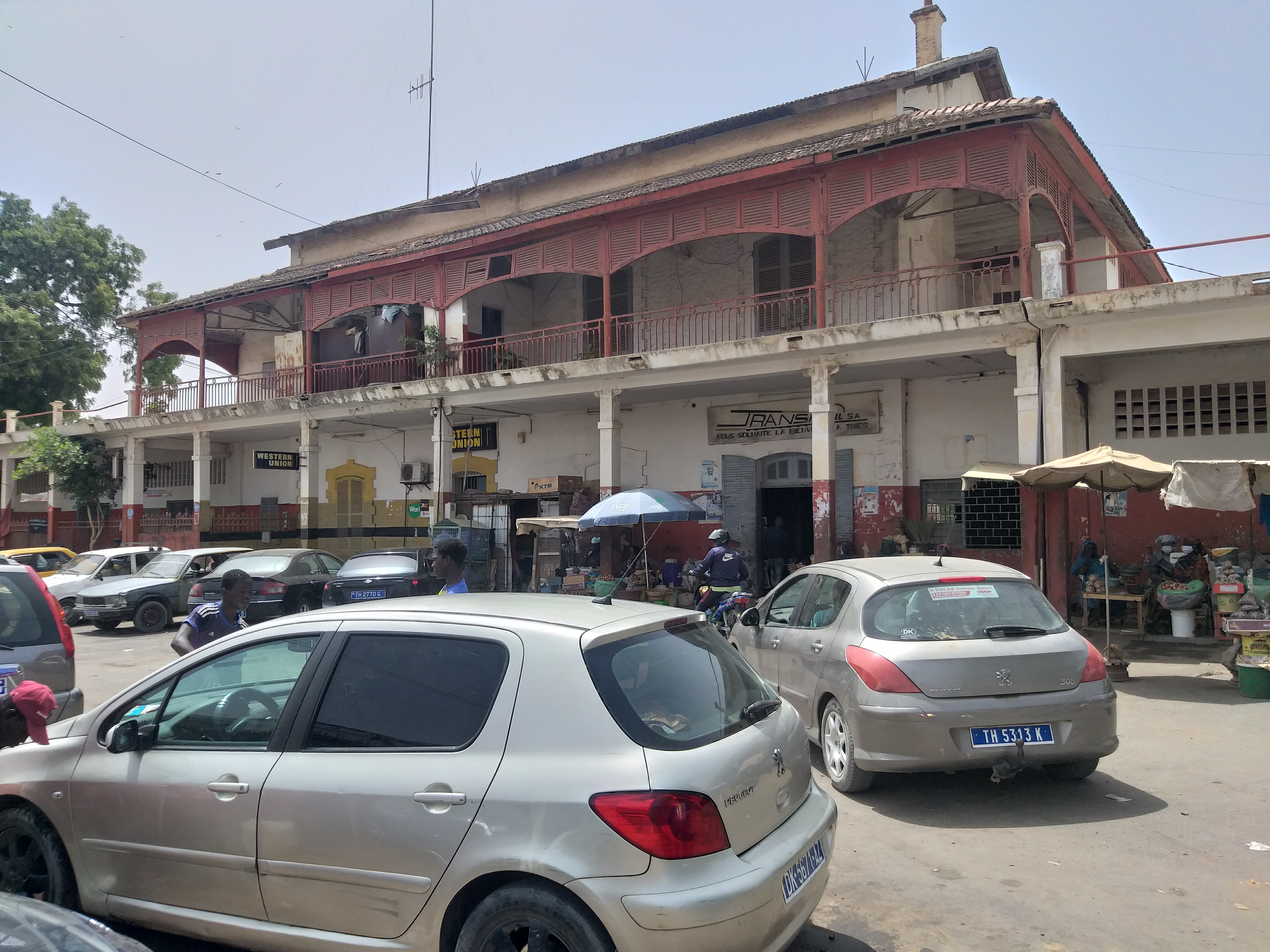|
Parti Socialiste Sénégalais
The Senegalese Socialist Party (french: Parti Socialiste Sénégalais) was a political party in Senegal (at the time part of French West Africa). PSS was founded in July 1934 by Lamine Guèye, as a split from the French Section of the Workers' International (SFIO). Guèye was the party president, Armand Angrand (former mayor of Dakar) general secretary and Maître Vidal, Charles Graziani and Amadou Assane Ndoye vice-presidents. The first congress of PSS was held on June 30, 1935, and the second November 24 the same year. PSS published ''Clartés''. In 1936, PSS joined the Popular Front. Ahead of the elections PSS formed its own combat groups, to protect their meetings. In 1937, a joint list of SFIO and PSS won the municipal elections in Saint-Louis. Maître Vidal became mayor. The congress of PSS held June 4–5, 1938, decided to merge the party with SFIO. Following that decision, a June 11–12 congress of the new federation of SFIO was held in Thiès Thiès (; ar, ... [...More Info...] [...Related Items...] OR: [Wikipedia] [Google] [Baidu] |
Lamine Guèye (politician)
Lamine Gueye may refer to: * Amadou Lamine-Guèye (1891-1968), Senegalese politician * Lamine Guèye (skier) Lamine Guèye (born 18 July 1960) is a Senegalese skier, and the current president of the Senegalese Ski Federation, which he founded in 1979. He competed at three Winter Olympic Games for Senegal, in 1984, 1992 and 1994. Early life Born in Dakar ... (born 1960), Senegalese skier * Lamine Gueye (footballer) (born 1998), Senegalese footballer * Stade Lamine Guèye, multi-use stadium in Kaolack, Senegal See also * Lamine-Gueye Koné (born 1989), Ivorian footballer {{hndis, Gueye, Lamine ... [...More Info...] [...Related Items...] OR: [Wikipedia] [Google] [Baidu] |
Democratic Socialism
Democratic socialism is a Left-wing politics, left-wing political philosophy that supports political democracy and some form of a socially owned economy, with a particular emphasis on economic democracy, workplace democracy, and workers' self-management within a market socialist economy or an alternative form of a decentralised planned socialist economy. Democratic socialists argue that capitalism is inherently incompatible with the values of freedom, Egalitarianism, equality, and solidarity and that these Ideal (ethics), ideals can only be achieved through the realisation of a socialist society. Although most democratic socialists seek a gradual transition to socialism, democratic socialism can support revolutionary or reformist politics to establish socialism. ''Democratic socialism'' was popularised by socialists who opposed the backsliding towards a one-party state in the Soviet Union and other nations during the 20th century. The history of democratic socialism can be trac ... [...More Info...] [...Related Items...] OR: [Wikipedia] [Google] [Baidu] |
French Section Of The Workers' International
The French Section of the Workers' International (french: Section française de l'Internationale ouvrière, SFIO) was a political party in France that was founded in 1905 and succeeded in 1969 by the modern-day Socialist Party. The SFIO was founded during the 1905 Globe Congress in Paris as a merger between the French Socialist Party and the Socialist Party of France in order to create the French section of the Second International, designated as the party of the workers' movement. The SFIO was led by Jules Guesde, Jean Jaurès (who quickly became its most influential figure), Édouard Vaillant and Paul Lafargue (Karl Marx's son in law), and united the Marxist tendency represented by Guesde with the social-democratic tendency represented by Jaurès. The SFIO opposed itself to colonialism and to militarism, although the party abandoned its anti-militarist views and supported the national union government (french: link=no, Union nationale) facing Germany's declaration of war on F ... [...More Info...] [...Related Items...] OR: [Wikipedia] [Google] [Baidu] |
Popular Front (Senegal)
Ahead of the 1936 elections to the French National Assembly, a Popular Front committee was formed in Senegal. It consisted of the local branch of French Section of the Workers' International (SFIO), the Senegalese Socialist Party, the local Communist cell, the Human Rights League, and the local branch of the Radical and Radical Socialist Party led by François Carpot. The committee supported the candidature of Lamine Guèye. See also * Popular Front (France) The Popular Front (french: Front populaire) was an alliance of French left-wing movements, including the communist French Communist Party (PCF), the socialist French Section of the Workers' International (SFIO) and the progressive Radical-So ... 1936 establishments in French West Africa Defunct left-wing political party alliances Defunct political parties in Senegal Defunct political party alliances in Africa Defunct socialist parties French West Africa Political parties established in 1936 Political pa ... [...More Info...] [...Related Items...] OR: [Wikipedia] [Google] [Baidu] |
Political Party
A political party is an organization that coordinates candidates to compete in a particular country's elections. It is common for the members of a party to hold similar ideas about politics, and parties may promote specific political ideology, ideological or policy goals. Political parties have become a major part of the politics of almost every country, as modern party organizations developed and spread around the world over the last few centuries. It is extremely rare for a country to have Non-partisan democracy, no political parties. Some countries have Single-party state, only one political party while others have Multi-party system, several. Parties are important in the politics of autocracies as well as democracies, though usually democracies have more political parties than autocracies. Autocracies often have a single party that governs the country, and some political scientists consider competition between two or more parties to be an essential part of democracy. Part ... [...More Info...] [...Related Items...] OR: [Wikipedia] [Google] [Baidu] |
Senegal
Senegal,; Wolof: ''Senegaal''; Pulaar: 𞤅𞤫𞤲𞤫𞤺𞤢𞥄𞤤𞤭 (Senegaali); Arabic: السنغال ''As-Sinighal'') officially the Republic of Senegal,; Wolof: ''Réewum Senegaal''; Pulaar : 𞤈𞤫𞤲𞤣𞤢𞥄𞤲𞤣𞤭 𞤅𞤫𞤲𞤫𞤺𞤢𞥄𞤤𞤭 (Renndaandi Senegaali); Arabic: جمهورية السنغال ''Jumhuriat As-Sinighal'') is a country in West Africa, on the Atlantic Ocean coastline. Senegal is bordered by Mauritania to the north, Mali to the east, Guinea to the southeast and Guinea-Bissau to the southwest. Senegal nearly surrounds the Gambia, a country occupying a narrow sliver of land along the banks of the Gambia River, which separates Senegal's southern region of Casamance from the rest of the country. Senegal also shares a maritime border with Cape Verde. Senegal's economic and political capital is Dakar. Senegal is notably the westernmost country in the mainland of the Old World, or Afro-Eurasia. It owes its name to the ... [...More Info...] [...Related Items...] OR: [Wikipedia] [Google] [Baidu] |
French West Africa
French West Africa (french: Afrique-Occidentale française, ) was a federation of eight French colonial territories in West Africa: Mauritania, Senegal, French Sudan (now Mali), French Guinea (now Guinea), Ivory Coast, Upper Volta (now Burkina Faso), Dahomey (now Benin) and Niger. The federation existed from 1895 until 1958. Its capital was Saint-Louis, Senegal until 1902, and then Dakar until the federation's collapse in 1960. History Until after World War II, almost none of the Africans living in the colonies of France were citizens of France. Rather, they were "French subjects", lacking rights before the law, property ownership rights, rights to travel, dissent, or vote. The exception was the Four Communes of Senegal: those areas had been towns of the tiny Senegal Colony in 1848 when, at the abolition of slavery by the French Second Republic, all residents of France were granted equal political rights. Anyone able to prove they were born in these towns was legally Fre ... [...More Info...] [...Related Items...] OR: [Wikipedia] [Google] [Baidu] |
Dakar
Dakar ( ; ; wo, Ndakaaru) (from daqaar ''tamarind''), is the capital and largest city of Senegal. The city of Dakar proper has a population of 1,030,594, whereas the population of the Dakar metropolitan area is estimated at 3.94 million in 2021. The area around Dakar was settled in the 15th century. The Portuguese established a presence on the island of Gorée off the coast of Cap-Vert and used it as a base for the Atlantic slave trade. France took over the island in 1677. Following the abolition of the slave trade and French annexation of the mainland area in the 19th century, Dakar grew into a major regional port and a major city of the French colonial empire. In 1902, Dakar replaced Saint-Louis as the capital of French West Africa. From 1959 to 1960, Dakar was the capital of the short-lived Mali Federation. In 1960, it became the capital of the independent Republic of Senegal. History The Cap-Vert peninsula was settled no later than the 15th century, by the Lebu peop ... [...More Info...] [...Related Items...] OR: [Wikipedia] [Google] [Baidu] |
Saint-Louis, Senegal
Saint Louis or Saint-Louis ( wo, Ndar), is the capital of Senegal's Saint-Louis Region. Located in the northwest of Senegal, near the mouth of the Senegal River, and 320 km north of Senegal's capital city Dakar, it has a population officially estimated at 258,592 in 2021. Saint-Louis was the capital of the French colony of Senegal from 1673 until 1902 and French West Africa from 1895 until 1902, when the capital was moved to Dakar. From 1920 to 1957, it also served as the capital of the neighboring colony of Mauritania. The town was an important economic center during French West Africa, but it is less important now. However it still has important industries, including tourism, a commercial center, a center of sugar production, and fishing. The Tourism industry is in part due to the city being listed as a UNESCO World Heritage Site in 2000. However, the city is also Climate change vulnerability, vulnerable to climate change—where sea level rise is expected to threaten the ci ... [...More Info...] [...Related Items...] OR: [Wikipedia] [Google] [Baidu] |
Thiès
Thiès (; ar, ثيس, Ṯyass; Noon: ''Chess'') is the third largest city in Senegal with a population officially estimated at 320,000 in 2005. It lies east of Dakar on the N2 road and at the junction of railway lines to Dakar, Bamako and St-Louis. It is the capital of Thiès Region and is a major industrial city. History Before colonization, the Thiès Plateau was a wooded frontier between the kingdoms of Cayor and Baol inhabited by the Serer-Noon, an ethnic sub-group of the Serer people. The Serer-Noon still inhabit the Thiès-Nones neighborhood of the south-west city today. They speak the Noon language, one of the Cangin languages. The village of Dianxene, belonging to the kingdom of Cayor, was founded on the strategically important plateau in the 17th century. In 1860, it had only 75 inhabitants. The French founded a military post there in 1864, becoming an important force in the city's development ever since. The Spiritans founded a mission there in the late 19th cen ... [...More Info...] [...Related Items...] OR: [Wikipedia] [Google] [Baidu] |
Political Parties Established In 1934
Politics (from , ) is the set of activities that are associated with making decisions in groups, or other forms of power relations among individuals, such as the distribution of resources or status. The branch of social science that studies politics and government is referred to as political science. It may be used positively in the context of a "political solution" which is compromising and nonviolent, or descriptively as "the art or science of government", but also often carries a negative connotation.. The concept has been defined in various ways, and different approaches have fundamentally differing views on whether it should be used extensively or limitedly, empirically or normatively, and on whether conflict or co-operation is more essential to it. A variety of methods are deployed in politics, which include promoting one's own political views among people, negotiation with other political subjects, making laws, and exercising internal and external force, including w ... [...More Info...] [...Related Items...] OR: [Wikipedia] [Google] [Baidu] |





